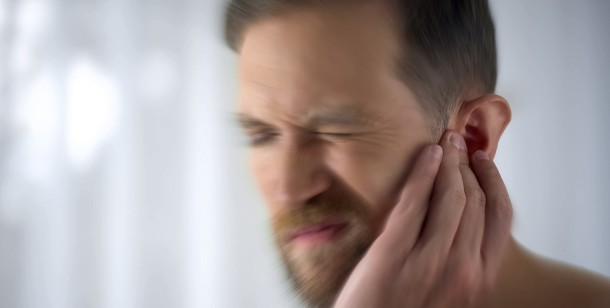Tingling in your ears might seem like a minor annoyance, but it can be a significant indicator of your overall health. This sensation can stem from various factors ranging from benign to more serious health concerns. Understanding what your body is trying to tell you through such symptoms is important for maintaining good health. In this article, we’ll explore the common causes of ear tingling, its possible connections to broader health issues, and when it might be time to seek medical attention.

What Causes Tingling In The Ears?
Tingling in the ears can result from multiple factors, including:
- Allergies – Allergic reactions can cause inflammation in various parts of the body, including the ears. This inflammation can lead to a tingling sensation. Common allergens like pollen, dust, and pet dander can trigger these reactions, especially during high allergy seasons or in particularly dusty environments.
- Infections – Ear infections are significant causes of discomfort and can affect different parts of the ear. They can lead to symptoms like pain, a sense of fullness, and tingling. Infections can occur in the outer, middle, or inner ear, each presenting unique symptoms in varying levels of discomfort. To learn more about this, visit our page on the signs and symptoms of ear infections.
- Nerve Damage – Conditions such as diabetes can affect nerves throughout the body, including those in the ear. Nerve damage in and around the ears can manifest as tingling sensations. This type of nerve damage, known as neuropathy, can progressively worsen without proper management of the underlying condition.
- Hypertension – High blood pressure can lead to circulatory issues which might affect the nerves and blood vessels in the ears, causing tingling. Managing your blood pressure is therefore important not only for your overall health but also for maintaining good ear health

When To See A Doctor
While occasional tingling might not be a sign of something serious, there are situations when consulting a healthcare professional is advised:
- Persistent Tingling – If the tingling in your ear doesn’t go away or keeps recurring, it’s important to get it checked. Continuous or recurring tingling could indicate a persistent underlying issue that might need treatment.
- Accompanying Symptoms – If the tingling is accompanied by pain, loss of hearing, dizziness, or severe headaches, it could indicate a more serious condition. These symptoms can suggest infections, significant nerve damage, or other serious conditions.
- After an Injury – If you start experiencing tingling in your ears after an injury, particularly to the head or neck, you should seek medical attention. Such symptoms can sometimes indicate trauma to the nerves or other structures in the ear.
For professional advice and further evaluation, you can find your local Village Emergency Center by visiting our locations page.

Simple steps to protect your ear health.
Taking care of your ears is vital for preventing conditions that could cause tingling or other symptoms. Here are some simple steps to help protect your ear health:
- Regular Cleaning – Keep your ears clean, but avoid inserting objects deep into the ear canal, as they could cause damage.
- Protect Your Ears from Loud Noises – Use ear protection when exposed to loud environments to prevent damage to your hearing.
- Manage Chronic Conditions – If you have conditions like diabetes or hypertension, managing them effectively can help prevent complications, including those affecting your ears.

Conclusion
Tingling in the ears, while often not severe, can sometimes be a signal from your body that something is off. Whether it’s an allergy, an infection, or a more systemic issue like diabetes, it’s important to pay attention to what your ears are telling you. If you experience persistent or severe tingling, don’t hesitate to consult a healthcare professional to get a clear understanding of the underlying cause and appropriate treatment. Remember, taking proactive steps toward maintaining ear health is a key part of your overall well-being. Being attentive to these signs and acting on them can help you maintain not only your ear health but your general health as well.
Community-Centered Emergency Care
Staffed by residents who serve not only as healthcare professionals but also as friends and neighbors, our centers provide rapid, compassionate emergency medical services around the clock. Our state-of-the-art facilities boast minimal wait times, averaging under 10 minutes, and are equipped to manage everything from asthma to X-rays, ensuring comprehensive care is always accessible.

